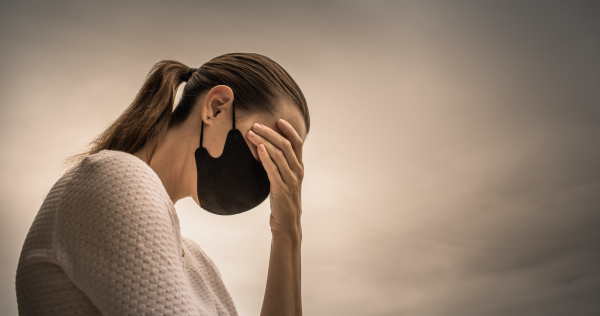Medibank has released new research that reveals the impact of the ongoing COVID-19 pandemic on the number of Australians feeling lonely for longer.
According to the research of almost 1,300 people, more than half (53 per cent) feel lonely on one or more days during a typical week, with 25 per cent citing the feeling of loneliness on three or more days.
It has also revealed the impact of the pandemic, with one in three now classified as living with high-level loneliness, up from one in four in 2020.
The majority of people surveyed (two in three) find it hard to spot loneliness in themselves or in others. Nearly half (44 per cent) believe that loneliness has no specific features and 69 per cent say it is something hard to see or identify in yourself or in others.
The main personal impact of loneliness is on health and relationships. Over half of those surveyed (56 per cent) who experience loneliness say it impacts their personal health and 46 per cent say it impacts their personal relationships.
According to University of Melbourne researcher Dr Frederic Kiernan, “Loneliness is a complex feeling and while not all loneliness is created equally, the pandemic has certainly amplified how many people experience it and how often.
"The new research highlights the misconceptions and misunderstandings around the loneliness experience, and also the denial that so many struggle to face. Now more than ever, people will need new ways to support their mental health and, as a result, improve their physical wellbeing."
Among those who self-report as being lonely, young, single people are a cohort of concern.
While 73 per cent of young, single people self-report as experiencing loneliness, only 36 per cent are looking for ways to manage it. Loneliness levels are lower amongst those who are ‘settling down’ as a couple (66 per cent), established families (57 per cent), elderly and alone people (47 per cent) and elderly and partnered people (29 per cent).
The research also found, when it comes to reducing the loneliness experience, top barriers are fear of burdening others (28 per cent), finding the words to describe the feeling properly (22 per cent) and feeling that people will not ‘get it’ (20 per cent).
Medibank has launched a new podcast series to coincide with the release of the new research.
'We Are Lonely', which is hosted by Myf Warhurst and Dr Kiernan, features in-depth interviews with Australian artists, actors and entertainers.
Actor Hugo Weaving AO shares his experience of loneliness and how it helped him creatively shape the various characters he has played across his career.
“I think it’s that terrible fear we have that we’re alone, and therefore that means that’s awful,” he said.
"Being alone doesn’t have to be awful. And part of the joy of life is trying to connect, actually, and trying to creatively connect.
“...In a way you could say that loneliness is actually a key ingredient for creativity. If you look at it in the most positive way. Why do we create? Why do we create an order to connect with other people? Why do we create art or music, or why do we act out shows for other people? To connect with them, to express something about who we are.”
Other names confirmed in the episodic line-up include Patricia Piccinini, Darren Hayes, Tash Sultana, and Yorta Yorta rapper Briggs.
“I think that loneliness is about that lack of connection with someone else or what's around you, and trying to differentiate what's loneliness, what's isolation, and alienation as well. I feel more isolated than I do lonely,” says Briggs.
